Resources
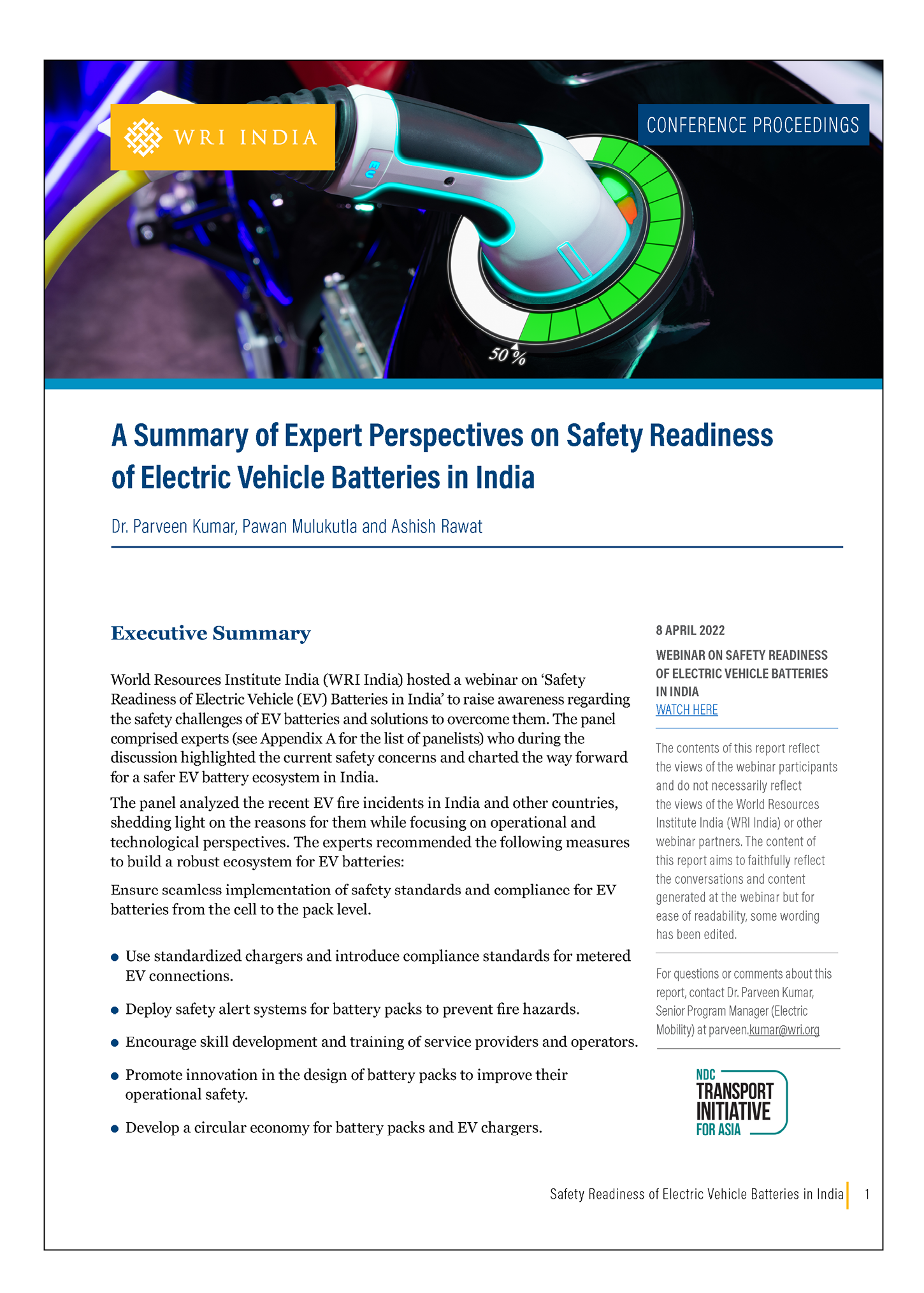
Conference Proceedings: A Summary of Expert Perspectives on Safety Readiness of Electric Vehicle Batteries in India
World Resources Institute India (WRI India) hosted a webinar on ‘Safety Readiness of Electric Vehicle (EV) Batteries in India’ to raise awareness regarding the safety challenges of EV batteries and solutions to overcome them. This document highlights the insights shared by the panelists on the current safety concerns and the way forward for a safer EV battery ecosystem in India.
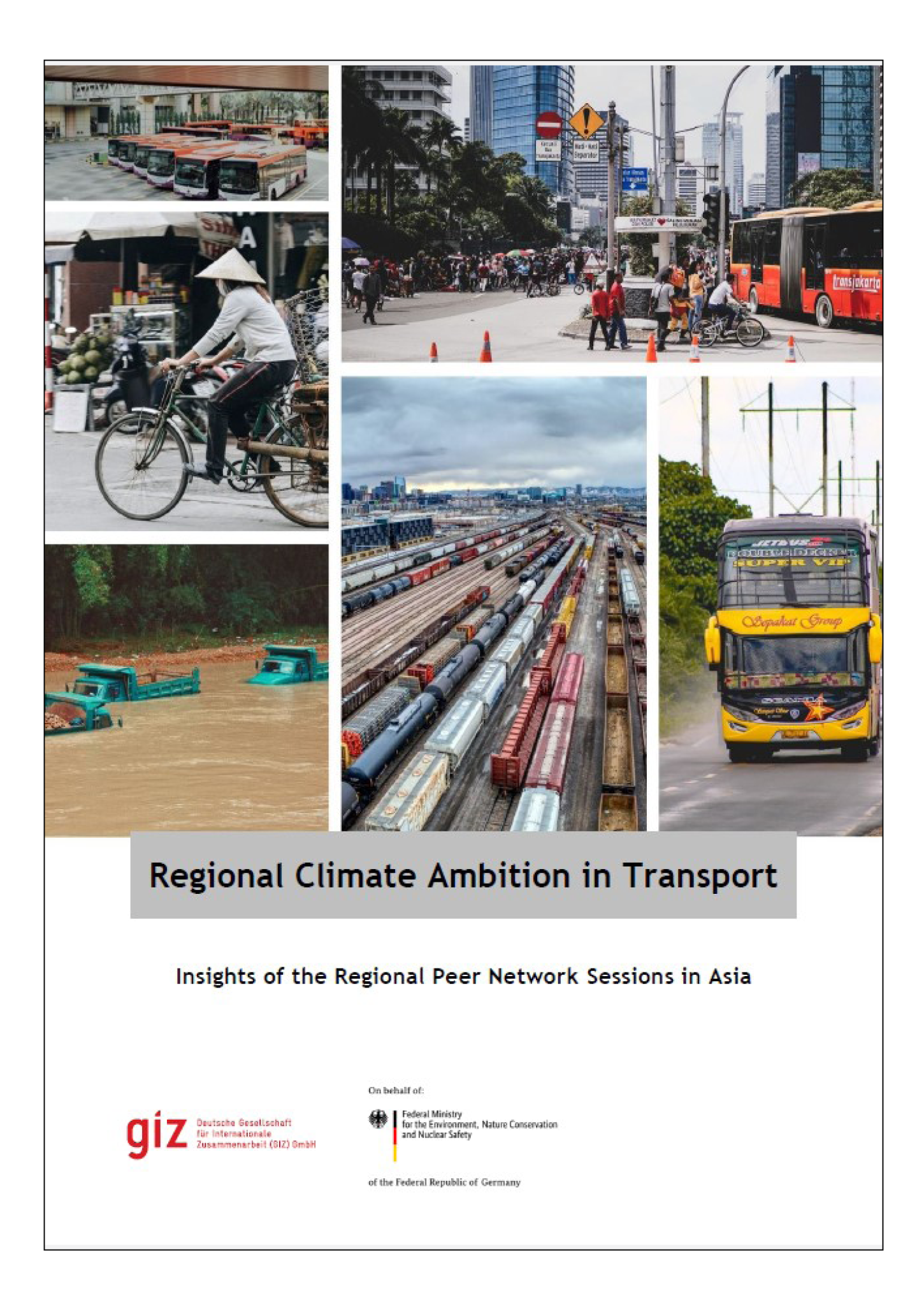
Asian Peer Network – Regional Climate Ambition in Transport
This paper provides an accumulation of insights of the GIZ’s Regional Peer Network sessions in the Asian region between May 2021 and January 2022.
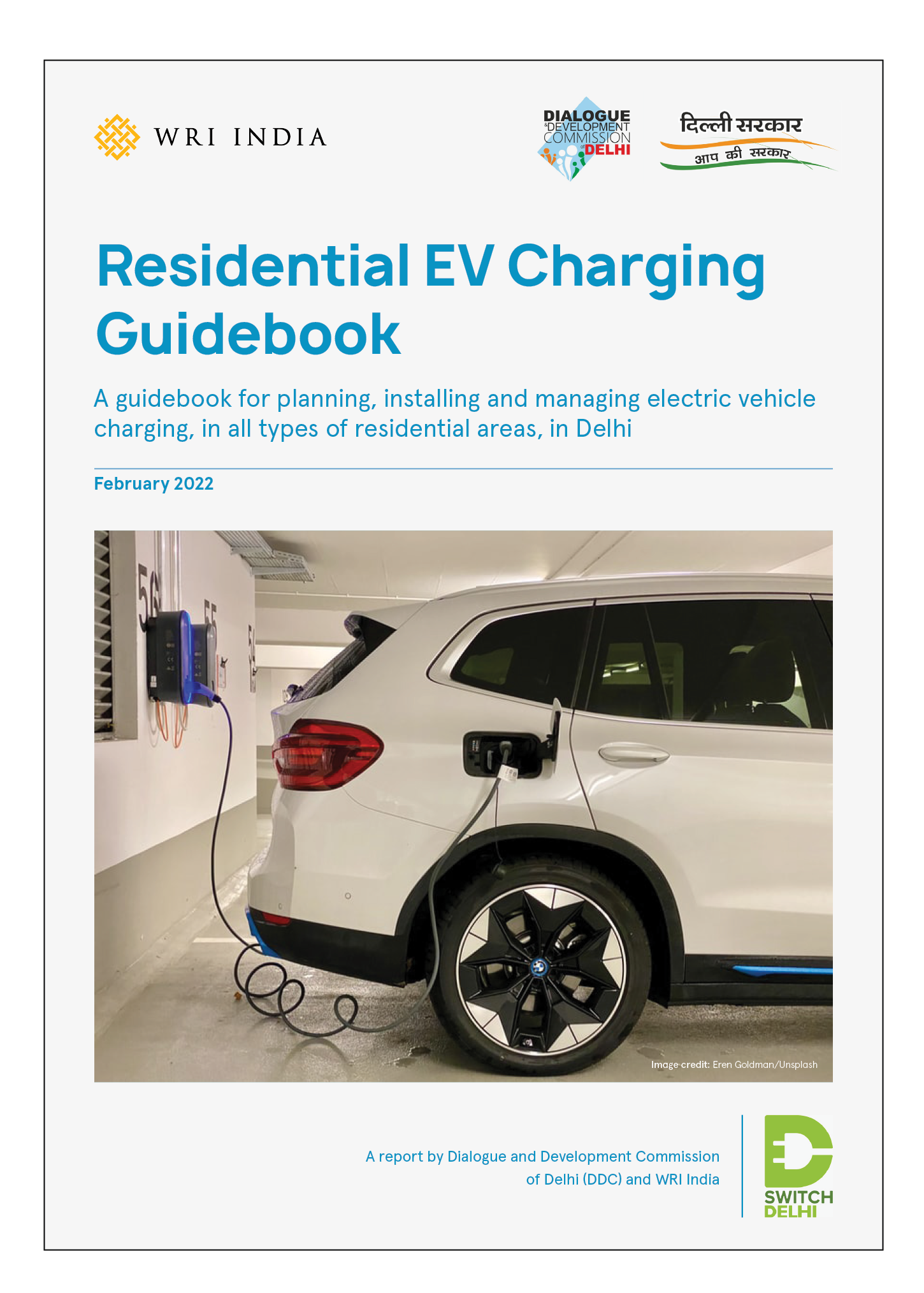
A guidebook for planning, installing and managing electric vehicle charging in all types of residential areas in Delhi
The Residential EV Charging Guidebook seeks to encourage all residential societies based out of Delhi to understand the importance of EV charging, support effective decision-making and set out the way forward for the planning and implementation of EV charging stations in the parking space of the societies.
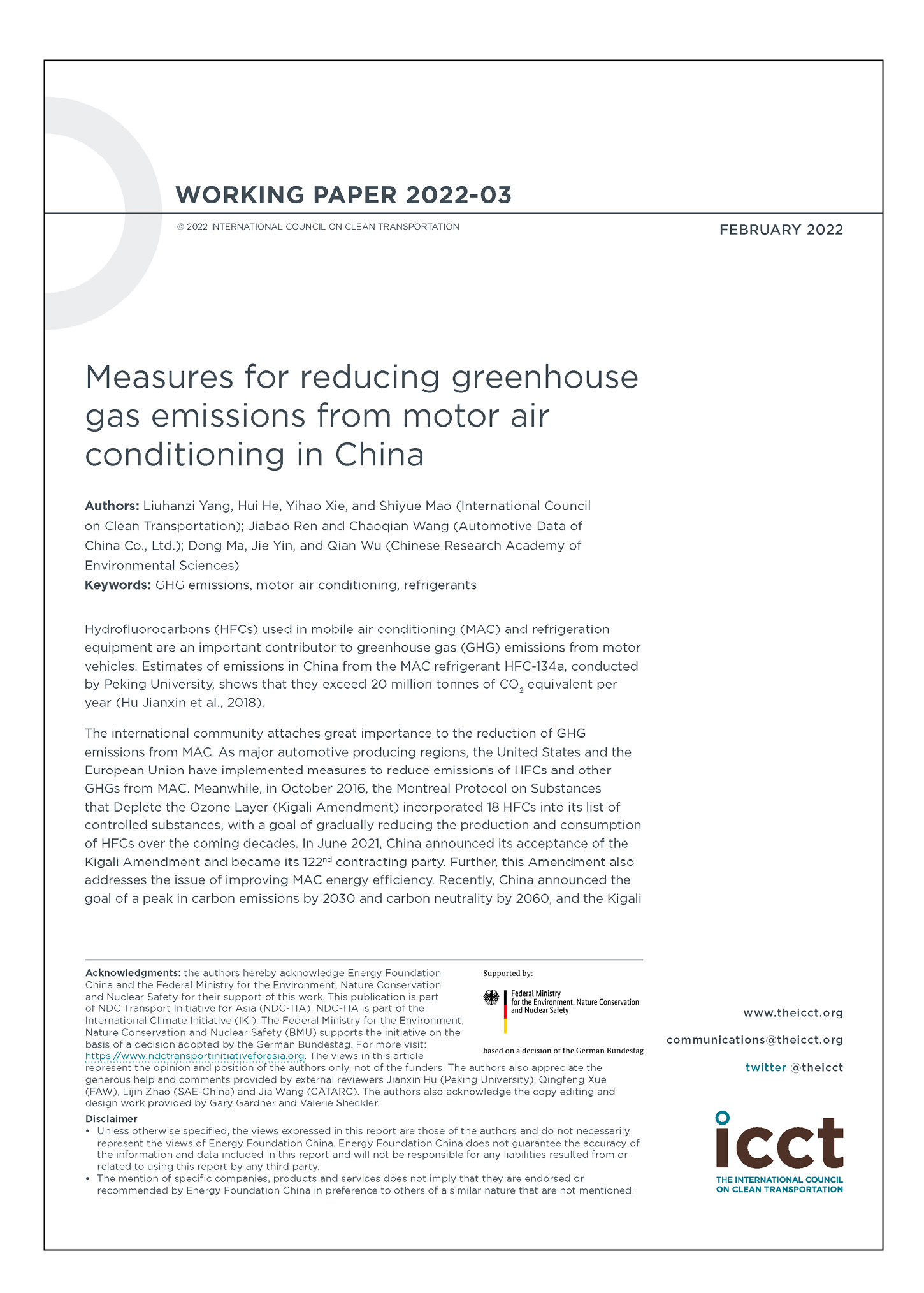
Measures for reducing greenhouse gas emissions from motor air conditioning in China
This paper discusses how to improve MAC energy efficiency in China and offers policy recommendations for future regulation of GHG emissions from MAC in China.
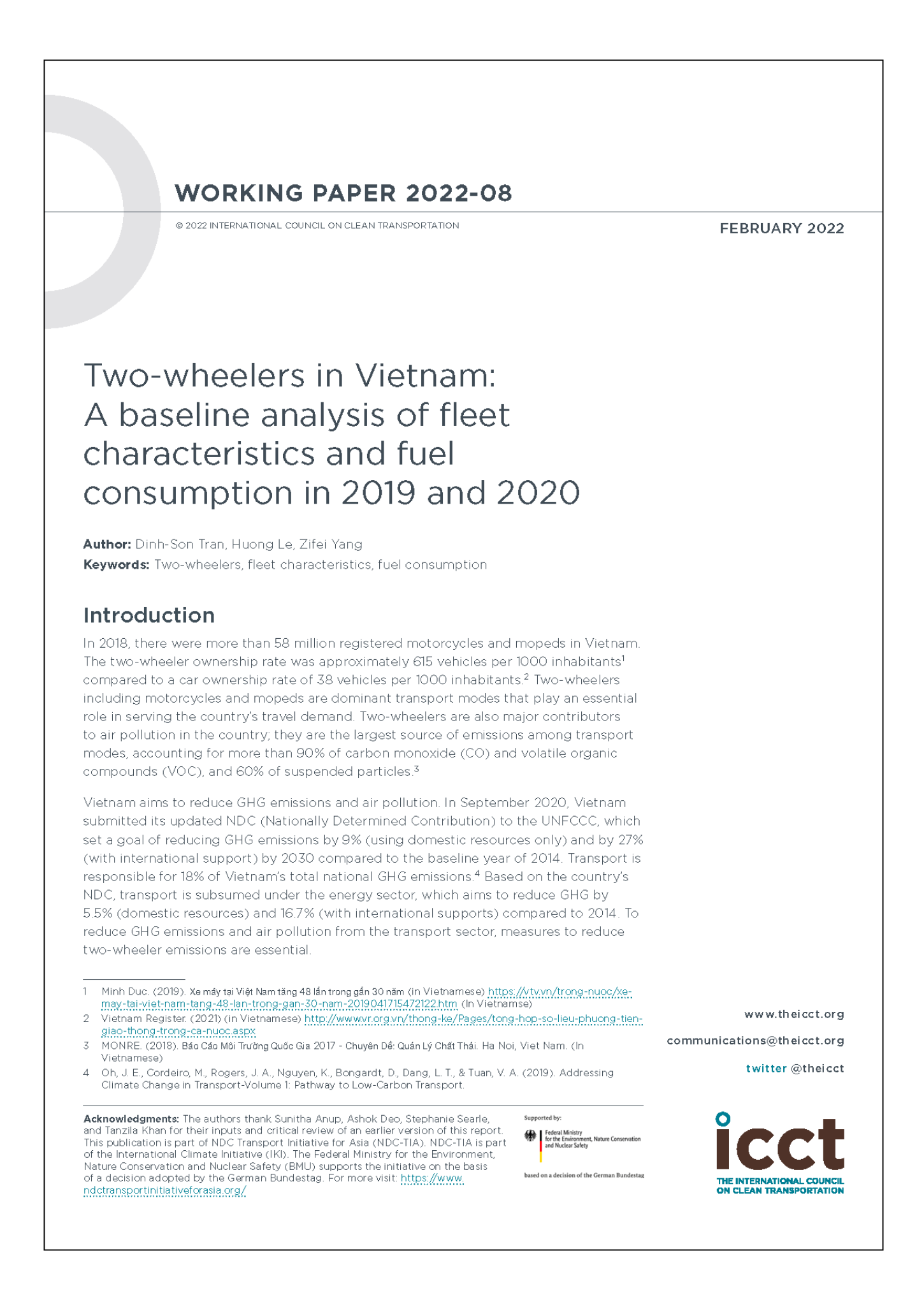
Two-wheelers in Vietnam: A baseline analysis of fleet characteristics and fuel consumption in 2019 and 2020
In this paper by ICCT, the authors developed a database of the two-wheeler fleet sold in 2019 and 2020 and then analyzed vehicle characteristics and fuel consumption by two-wheeler type and by manufacturer.
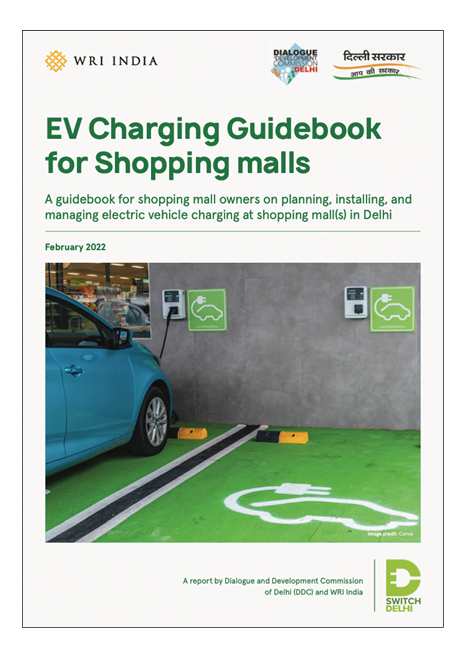
A guidebook for shopping mall owners on planning, installing, and managing electric vehicle charging at shopping mall(s) in Delhi
The EV charging guidebook for shopping malls provides step-to-step guidance to mall owners on planning, installing, and managing electric vehicle charging at shopping mall(s) in Delhi.
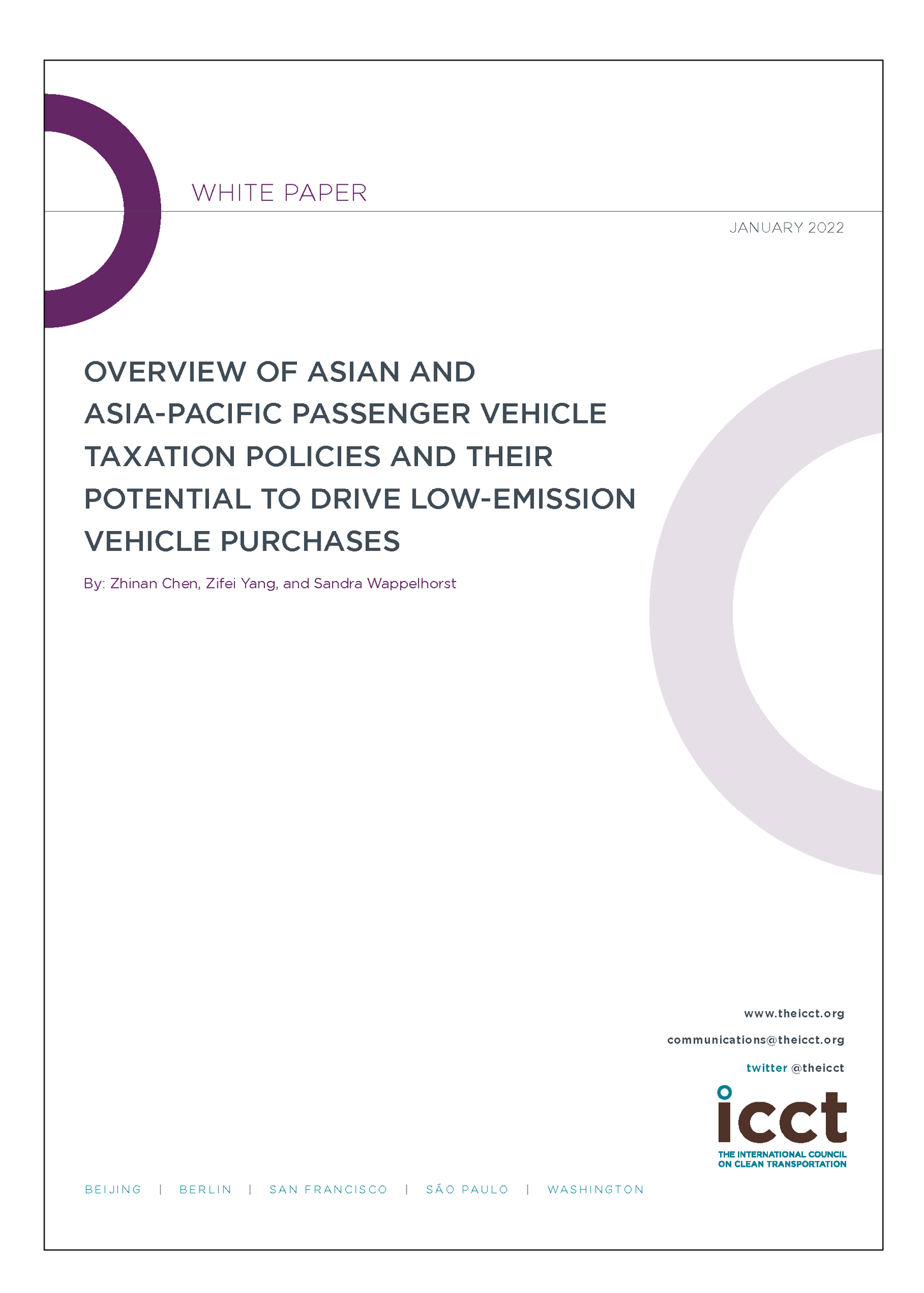
Overview of Asian and Asia-Pacific passenger vehicle taxation policies and their potential to drive low-emission vehicle purchases
This paper by ICCT focuses on national-level taxation and subsidy policies for passenger vehicles across 18 Asian and Asia-Pacific countries and compares the consumer ownership costs of a gasoline, a hybrid electric, and a battery electric vehicle in these countries over a 6-year ownership period.
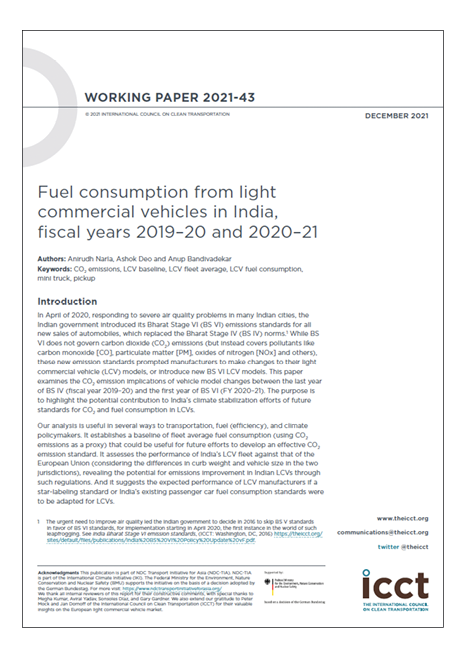
Fuel consumption from light commercial vehicles in India, fiscal years 2019–20 and 2020–21
This paper is a continuation of the series of working papers on the Indian LCV market, dating back to 2016. it focuses on the N1 (load-carrying LCVs) category of vehicles, which consists of mini trucks and pickups. It includes a brief comparison with the performance of the M1 (passenger cars) category of vehicles
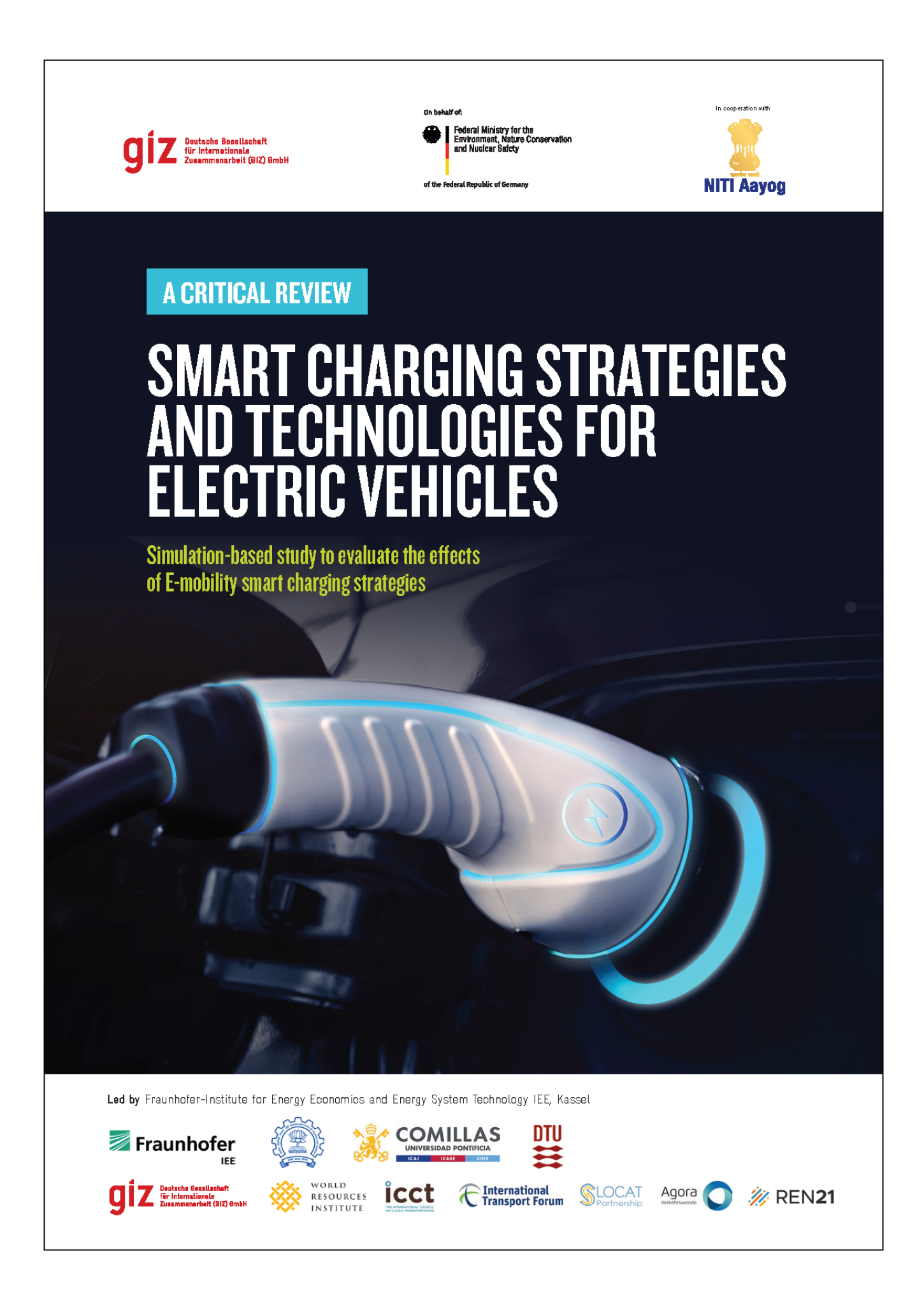
Smart Charging Strategies and Technologies for Electric Vehicles
This GIZ India-led report focuses on Electric Vehicles (EV) smart charging strategies and approaches, related policy and regulatory measures, technical aspects, grid integration of EVs, and the way forward for smooth EV adaption in the Indian EV ecosystem.
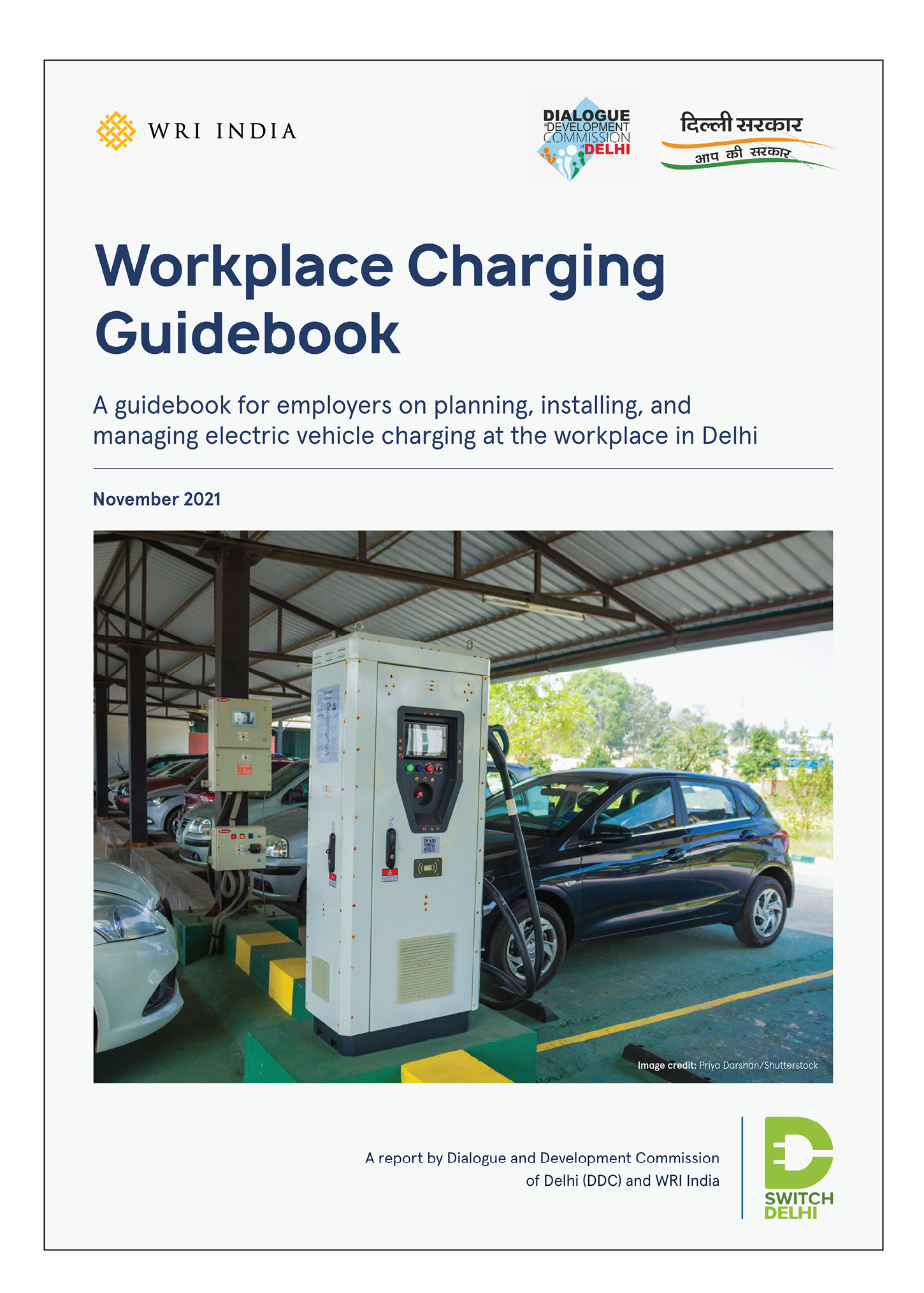
A guidebook for employers on planning, installing, and managing electric vehicle charging at the workplace in Delhi
The Workplace EV Charging Guidebook provides step-wise guidance for employers on planning, installing, and managing electric vehicle charging at their workplace in Delhi.
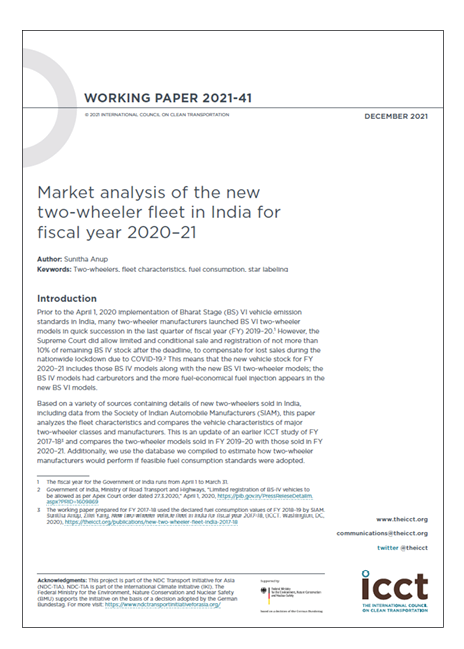
Market analysis of the new two-wheeler fleet in India for fiscal year 2020–21
This study analyzes fleet characteristics and compares the vehicle characteristics of major manufacturers and classes of new two-wheelers sold in India for the fiscal year 2020-2021.
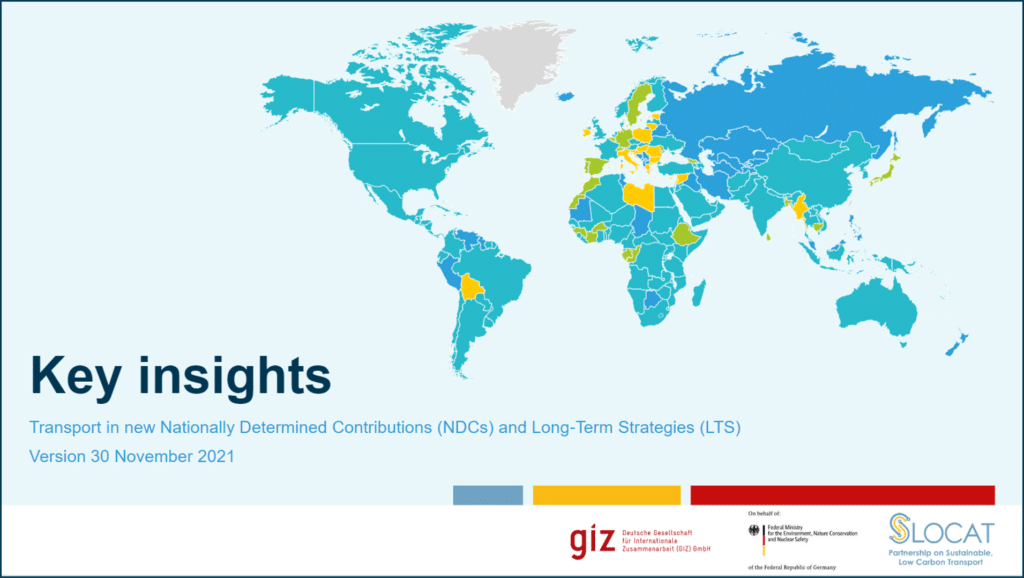
Transport in New Nationally Determined Contributions and Long-Term Strategies
Published in October 2021, the new report from SLOCAT and TraCS analyzed the role of transport in new and updated NDCs and LTS.
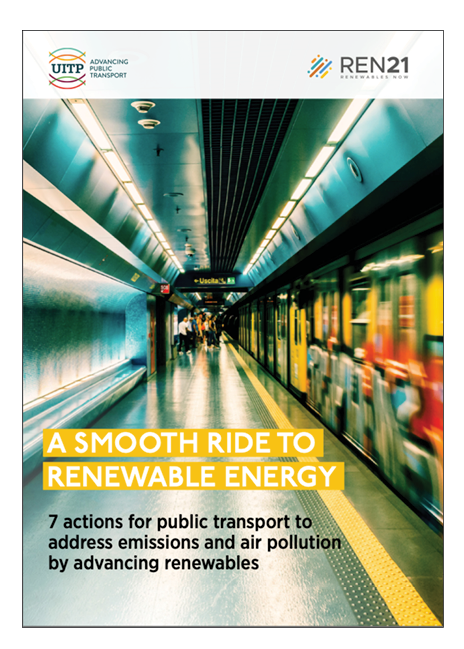
A smooth ride to renewable energy: 7 actions for public transport to address emissions and air pollution by advancing renewables
This policy brief produced in a collaboration between UITP and REN21 proposes actions and solutions that can accelerate the path to achieve net zero and carbon neutral goals through the connection between renewable energy and public transport. This brief is for public transport authorities, public transport operators, urban planners and anyone interested in advancing renewables in public transport.
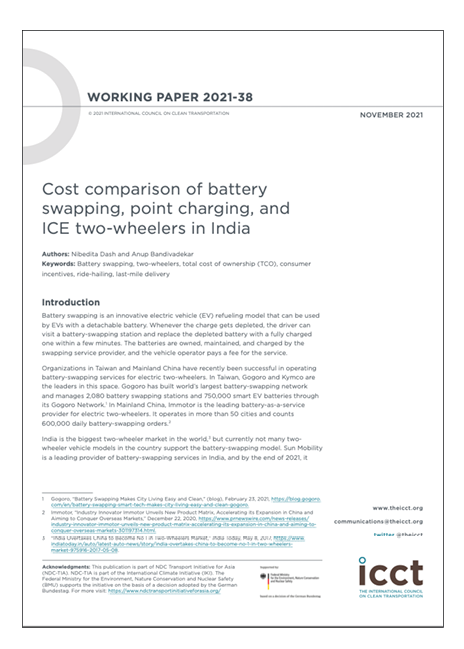
Cost comparison of battery swapping, point charging, and ICE two-wheelers in India
Battery swapping is an innovative electric vehicle refueling model that can be used by vehicles with a detachable battery. This paper evaluates if electric two-wheelers in India with the battery-swapping option have achieved cost parity relative to electric two-wheelers with the point charging option and with conventional gasoline two-wheelers. The results in this working paper show that for all three use cases considered, the electric two-wheelers with point-charging and battery-swapping options are considerably cheaper than the gasoline two-wheeler.
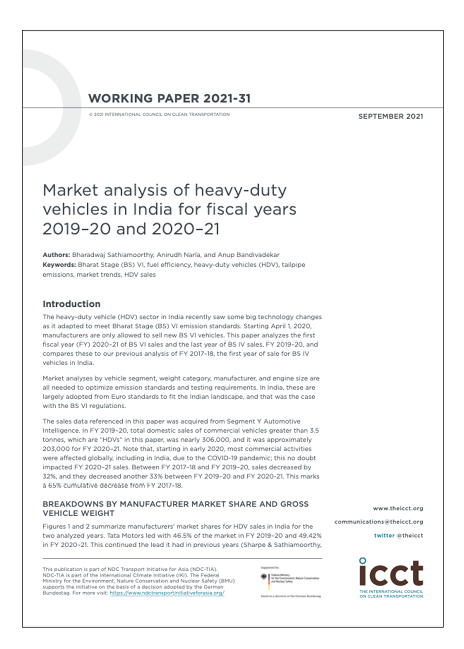
Market analysis of heavy-duty vehicles in India for fiscal years 2019–20 and 2020–21
Market analyses by vehicle segment, weight category, manufacturer, and engine size are needed to optimize vehicle emission standards and testing requirements. In India, these are largely adopted from Euro standards to fit the Indian landscape, and that was the case with the Bharat Stage (BS) VI regulations that took effect April 1, 2020. The heavy-duty vehicle market saw some big technology changes to meet the new standards, and this paper analyzes the first fiscal year (FY) 2020–21 of BS VI vehicle sales and the last year of sales under the previous BS IV standard, FY 2019–20.
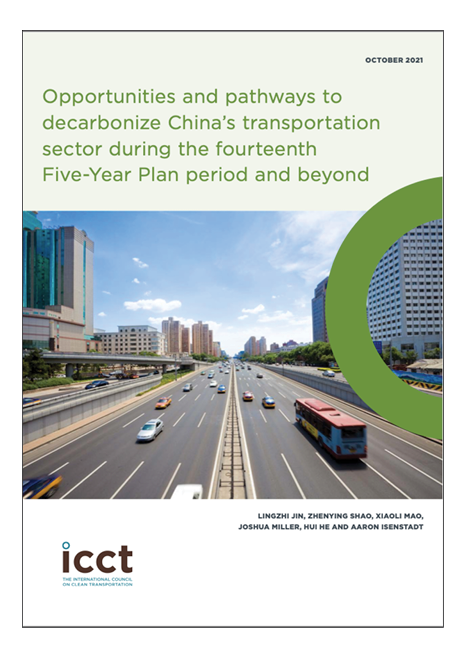
Opportunities and pathways to decarbonize China’s transportation sector during the fourteenth Five-Year Plan period and beyond
This study uses cutting-edge emission-modeling tools to assess the potential for reducing climate pollutants, including CO2, using advanced policy packages compared with policies currently in effect for China’s transportation sector. It provides China with a technical foundation for consideration of carbon reduction goals during the 14th Five-Year-Plan (FYP) period (2021–2025) and over the longer term.
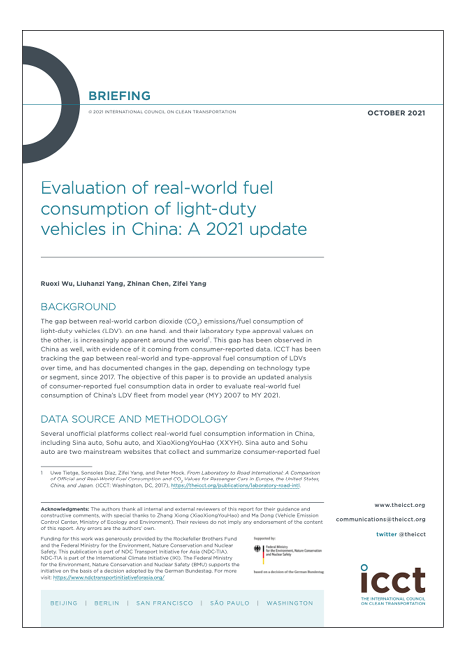
Evaluation of real-world fuel consumption of light-duty vehicles in China: A 2021 update
The gap between real-world fuel consumption and emissions of carbon dioxide from light-duty vehicles (LDV), and their laboratory values, is increasingly apparent around the world, including in China. This ICCT briefing shows that the accelerated expansion of the gap clearly indicates the need for regulatory changes to reverse the trend and close the gap.
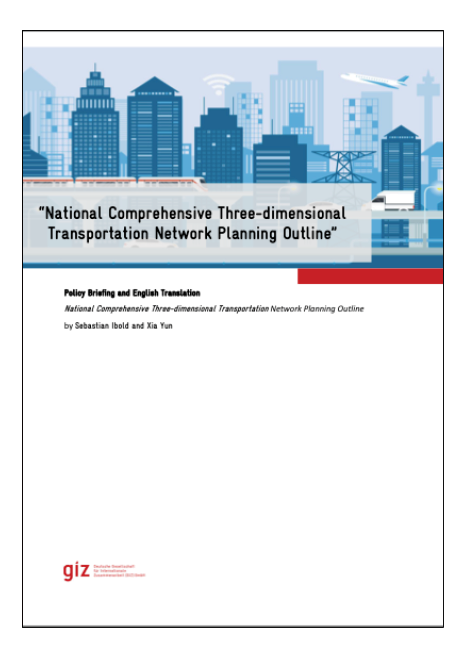
National Comprehensive Three-dimensional Transportation Network Planning Outline
The outline is a strategic top-level policy guiding the development of a comprehensive and fully integrated transport system in China with a planning period from 2021 to 2035, and a vision to the middle of this century.
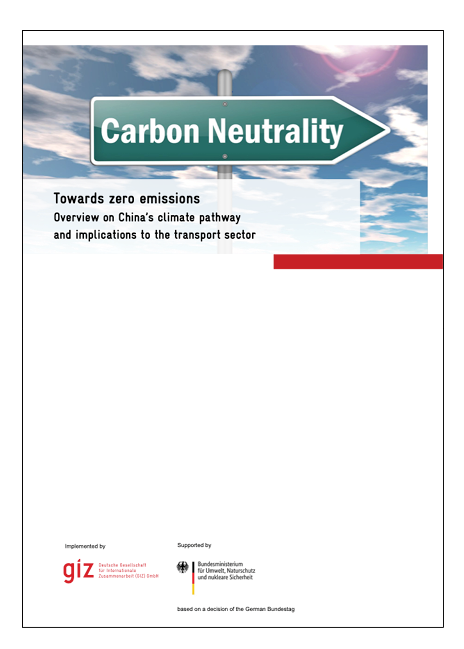
Towards zero emissions: Overview on China’s climate pathway and implications to the transport sector
This paper provides an overview of China’s climate protection pathway with regards to the role of the transport sector in achieving carbon dioxide emissions peaking by 2030 and carbon neutrality by 2060.
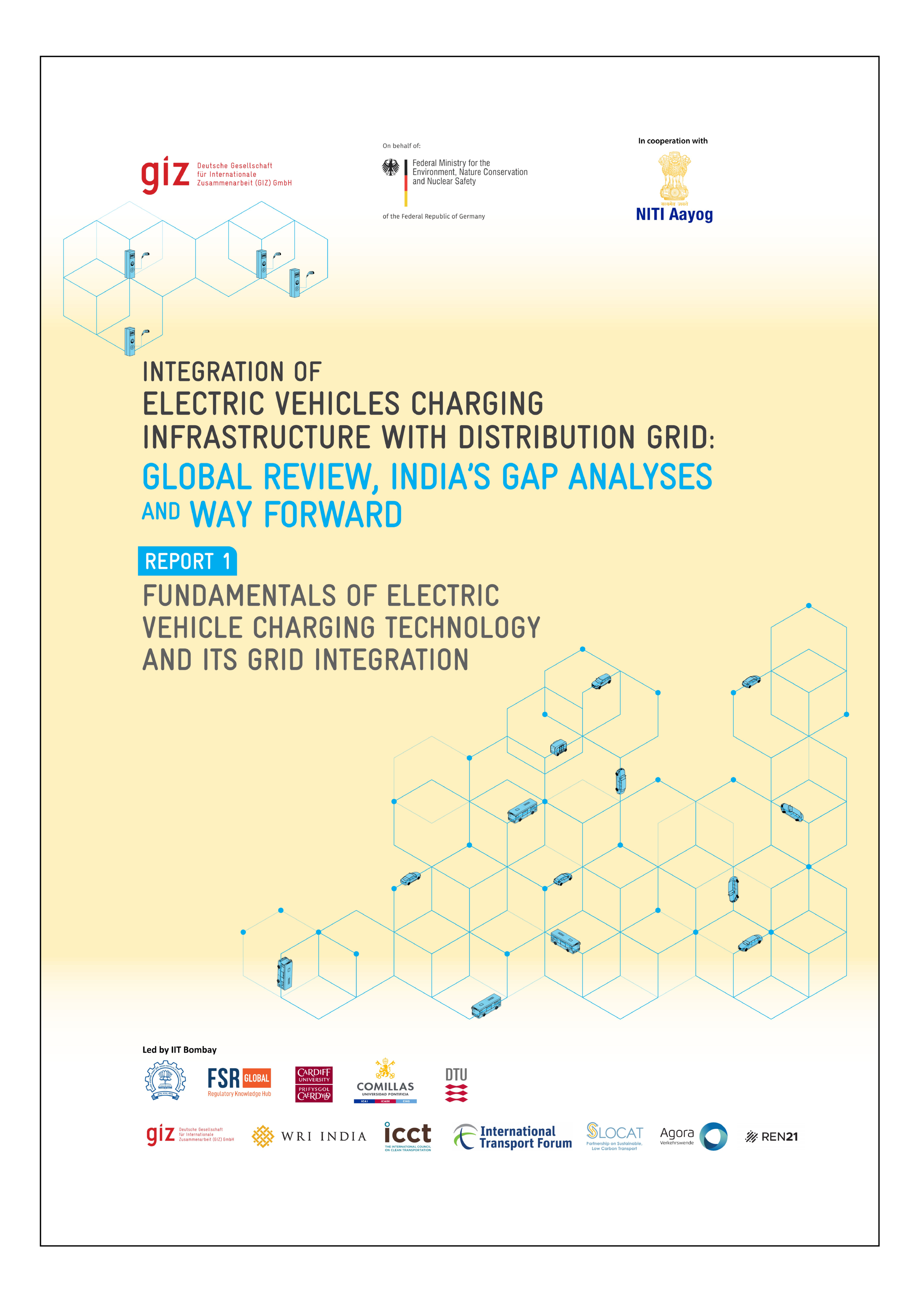
Fundamentals of Electric Vehicle Charging Technology and its Grid Integration - Report 1
The study focuses on EV charging infrastructure, related policy and regulatory measures, grid integration of EVs, and the way forward for smooth EV adaption in the Indian EV ecosystem. This specific report is the first in the series of four reports documenting the fundamentals of EV charging technology, standards, communication protocols, and grid integration of EVs with the distribution system.
